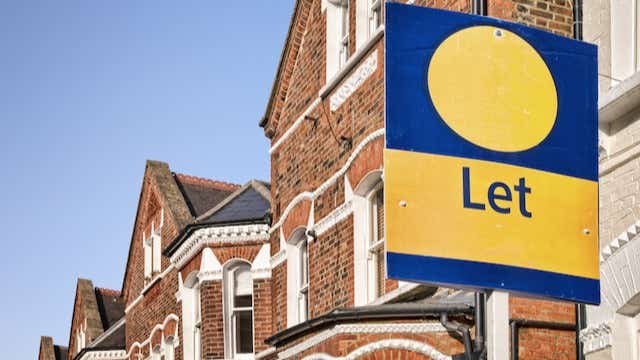- Uswitch.com>
- Home Insurance>
- Insurance for Let Property - Buy to Let Landlord Cover
Buy to let buildings insurance for landlords

Our guide on landlord insurance and buy to let insurance explains how to find the right insurance and protect your property, whether you’re planning on renting out a property you currently own or are looking to compare buy to let insurance.
Do I need to insure my let property?
If you’re a landlord, there is no legal requirement to insure your property. However, most buy to let lenders will not provide you with a mortgage unless you can provide proof that you have a landlords’ insurance policy.
Whether you have a mortgage or you own the property outright, landlord insurance is practically essential. As the property’s owner, you’ll be responsible for any repair costs should any damage occur. And if there’s serious damage such as in the case of a fire, the costs can be devastating if you’re not insured.
Standard home insurance is not suitable for landlords, as most providers will state that the insured property must be solely occupied by the policyholder and their family.
Regular home insurance also misses the mark because of the unique requirements of landlords and their tenants, but specialist landlord insurance policies take all of this into account.
What does landlord insurance cover?
All policies can offer different levels of protection, but some features or add-ons available with landlord insurance include:
Emergency assistance Every landlord dreads a late-night phone call from their tenant telling them their boiler has broken down or a pipe has burst. Emergency assistance cover will pay out to cover the cost of emergency callouts and repairs to ensure no further damage is caused to the property.
Accidental damage Most home insurance policies will cover your property for damage caused by flood, fire, break-ins, etc. While most insurers will exclude accidental damage as standard, you can add this onto your policy. It covers damage caused by events such as putting your foot through the loft floor, kicking a football through the window or drilling through a water pipe. Make sure you check whether your landlords insurance covers accidental damage caused by tenants.
Alternative accommodation cover Alternative accommodation cover provides extra protection to the tenants in case the property becomes uninhabitable. The policy will cover you to provide suitable alternative accommodation for your tenants while repairs are carried out.
Rent guarantee Rent guarantee cover, also known as loss of rent cover, is beneficial when the property becomes uninhabitable and you will not receive any rent payments from your tenants. This will cover you for a monthly amount to account for your loss of earnings.
Legal expenses While you may be lucky enough to have perfect tenants, at some point many landlords face the uncomfortable situation of taking legal action against their tenants. Legal expenses cover provides a set amount for pursuing legal action — for example if you need to evict a tenant or take them to court to recover rent arrears.
Liability insurance You may also want to consider asking your insurer if they provide public liability insurance. Public liability insurance covers you for legal costs and damages if a tenant makes a claim for personal injury or property damage that occurs within the insured property.
Unoccupied property insurance Most home insurance policies only cover the building or contents if the house is continuously occupied. If the property is left unoccupied for more than 30 days in a row, this will usually invalidate the cover. If the house is likely to be unoccupied for more than 30 days, for example if you need to carry out renovations or if the house is empty between tenants moving, you will need to inform your insurer and take out an unoccupied property policy to cover this period. Read our guide on unoccupied property insurance to find out more.
What you need to know about landlord insurance
While building insurance is the basic cover that is suitable for most landlords, many people may find contents insurance useful too. Building insurance covers the property and any fixtures or fittings, and contents insurance covers the belongings inside.
Contents cover is worthwhile if you are providing the property as furnished — with this additional cover you’ll also be covered for damage to any of the furniture or other contents you own in the property. You could save money by buying both types of policy at once. Comparison sites such as Uswitch will allow you to compare the price for combined cover.
You must keep your insurer informed of anything that will affect the cover, such as any change of tenants, building work, or if the property is left empty for an extended period of time (most insurers will not cover you if the property is unoccupied for more than 30 days).
How to save money on landlord insurance
If you have a portfolio of properties you may be able to save on the cost of your insurance by insuring several properties under one policy. It’s worth talking to your insurer to see if they will cover your whole portfolio.
If you’re planning on taking out both buildings and contents insurance, you could save money by combining both types of policy with one provider.
Different landlord insurance providers will all offer different features and benefits, so it’s important to compare policies — get started by calling for a specialist landlord insurance quote.

